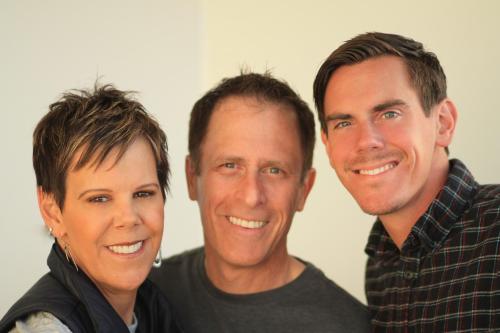
-
Understanding primary immunodeficiency (PI)

Understanding PI
The more you understand about primary immunodeficiency (PI), the better you can live with the disease or support others in your life with PI. Learn more about PI, including the various diagnoses and treatment options.
-
Living with PI
-
Addressing mental health
-
Explaining your diagnosis
- General care
- Get support
- For parents and guardians
-
Managing workplace issues
- Navigating insurance
-
Traveling safely

Living with PI
Living with primary immunodeficiency (PI) can be challenging, but you’re not alone—many people with PI lead full and active lives. With the right support and resources, you can, too.
-
Addressing mental health
-
Get involved

Get involved
Be a hero for those with PI. Change lives by promoting primary immunodeficiency (PI) awareness and taking action in your community through advocacy, donating, volunteering, or fundraising.
-
Advancing research and clinical care
-
Research Grant Program
-
Consulting immunologist
-
Diagnosing PI
-
Getting prior authorization
-
Clinician education
-
Survey research
-
Participating in clinical trials

Advancing research and clinical care
Whether you’re a clinician, researcher, or an individual with primary immunodeficiency (PI), IDF has resources to help you advance the field. Get details on surveys, grants, and clinical trials.
-
Research Grant Program
Families whose children have severe combined immunodeficiency (SCID) may decide to meet with a genetic counselor. While a genetic counselor can provide information about the genetics of the child’s condition, that’s not the main reason why most families coping with SCID schedule a visit, explained Dr. Barbara Biesecker in a recent IDF podcast, “Genetic Counseling.”
“It’s probably when parents have reached a point where they're beginning to seriously consider whether to have another child. And I would argue that they don't come to see a genetic counselor because they don't understand their chances because, by then, most parents know how it's inherited in their family and what it means for upcoming children,” said Biesecker.
“They come to see a counselor not to get an answer from the counselor about whether they should have more children or when they should have more children, but to talk through what are the considerations.”
With more than 35 years of experience in genetic counseling, clinical care, graduate education, and research, Biesecker is a genetic counselor and distinguished fellow with the Research Triangle Institute International. Along with her research in the Early Check newborn screening initiative, she’s an expert in social and behavioral outcomes of genomics, perceptions, and communication of uncertainties and related decisional factors.
Beisecker said when she meets with parents of children with SCID, she views her role as a facilitator, responding to the family’s needs. She endeavors to discover what they are interested in and what they want.
“So my first question is, what are you thinking now? Are you on the same page about this? Do you have a different perspective now? I listen to them, feed that information back to them, and then sort of walk them forward about to help them figure out how stuck they are.
“Some people come to me pretty close to thinking they're ready to make a decision, and they just kind of need a final encouragement over the finish line. Other people come because they're stuck. Perhaps one parent really is ready to go forward with another child, and the other isn't, or whatever the scenario. So I don't have expectations of where families are at. I open it up for discussion,” said Beisecker.
Genetic counselors serve populations in a variety of areas – prenatal, pediatric, cardiology, and cancer – by helping people understand how genetic information impacts their lives. Healthcare providers typically refer patients to one of the over 5,000 genetic counselors in the country. Another resource that aids in referrals is the National Society of Genetic Counselors.
Due to the pandemic, almost all genetic counseling appointments are taking place virtually and not in-person. Expect appointments to last about 45 minutes to one hour if it’s related to SCID.
Most of the time, families whose children are diagnosed with SCID rely on their medical team for information during treatment and recovery. However, sometimes, parents of children who are newly diagnosed with SCID want more details on their child’s condition from a genetic counselor.
Biesecker said that often when parents are in crisis mode with a new diagnosis, it’s difficult for them to process information, so she waits for them to ask questions instead of inundating them with facts.
“If I have somebody who's really eager to try and master something in the early stages, I'll write it down. Or if I have an information sheet, I'll give it to somebody so that they can go back and look at it,” she said
“It's not a time for teaching, but you also don't want to disrespect the fact that the parents have questions and they want to know that there are people out there who eventually can help them find the information.”
Beisecker said genetic counselors play a critical role in coaching parents through a process to make decisions themselves. Parents may still be grieving about what their child has endured early on in life or grappling with other people’s reactions to their child. Genetic counselors are trained to help people manage those challenges, she said.
“Well-trained genetic counselors help people find their own resources. People already have the way forward, but they just can't tap into it. So we're sort of a bridge to help them realize ways they might find to cope a little bit more effectively or actually, over time, adapt to a pretty hard circumstance they didn't think they could ever adapt to,” she said.
“It's the parents themselves that make those moves, make those adjustments. The counselors just facilitate it.”
Related resources
Sign up for updates from IDF
Receive news and helpful resources to your cell phone or inbox. You can change or cancel your subscription at any time.





The Immune Deficiency Foundation improves the diagnosis, treatment, and quality of life for every person affected by primary immunodeficiency.
We foster a community that is connected, engaged, and empowered through advocacy, education, and research.
Combined Charity Campaign | CFC# 66309




